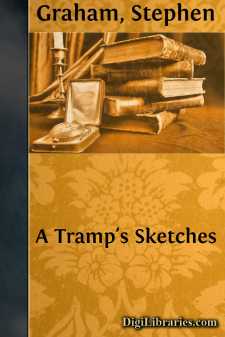Categories
- Antiques & Collectibles 13
- Architecture 36
- Art 48
- Bibles 22
- Biography & Autobiography 813
- Body, Mind & Spirit 142
- Business & Economics 28
- Children's Books 14
- Children's Fiction 11
- Computers 4
- Cooking 94
- Crafts & Hobbies 4
- Drama 346
- Education 46
- Family & Relationships 57
- Fiction 11828
- Games 19
- Gardening 17
- Health & Fitness 34
- History 1377
- House & Home 1
- Humor 147
- Juvenile Fiction 1873
- Juvenile Nonfiction 202
- Language Arts & Disciplines 88
- Law 16
- Literary Collections 686
- Literary Criticism 179
- Mathematics 13
- Medical 41
- Music 40
- Nature 179
- Non-Classifiable 1768
- Performing Arts 7
- Periodicals 1453
- Philosophy 64
- Photography 2
- Poetry 896
- Political Science 203
- Psychology 42
- Reference 154
- Religion 513
- Science 126
- Self-Help 84
- Social Science 81
- Sports & Recreation 34
- Study Aids 3
- Technology & Engineering 59
- Transportation 23
- Travel 463
- True Crime 29
Europe-Whither Bound? Being Letters of Travel from the Capitals of Europe in the Year 1921
by: Stephen Graham
Description:
Excerpt
LETTERS OF TRAVEL
I. FROM ATHENS
Europe, whither goest thou?—the poignant question of to-day. The pride of Christian culture, the greatest human achievement in history, with, as we thought before 1914, the seal of immortality set upon her, is now perhaps moving towards dissolution and death. Europe has begun a rapid decline, though no one dares to think that she will continue in it downward until she reaches the chaos and misery and barbarity from which she sprang. Affairs will presently take a turn for the better, Europe will recover her balance and resume the road of progress which she left seven years ago—prompts Hope.
"Europe must die in order to be re-born as something better"; "all must be destroyed," say the theorists of revolution. "She staggers and falls and falls and plunges," seem to say the facts with the inexorableness of Fate.
Prophecy can be left to all men—it does not alter the course of events. The historian in the future will ask what was the actual condition of Europe at this time, and it is possible to assume that he would grasp eagerly at an account of a visit by an impartial observer to all the principal capitals of Europe in the year 1921. An effort to record what Europe looks like now, a series of true reflections and verbal photographs of swirling humanity at the great congregating places, the capitals, cannot but be of value. So with the motto: "See all: reserve your judgment," let us proceed.
The winds of the mountains traverse the well-shod civilization of a great city. At the end of each of the long streets rises a mountain, and on the mountain rest the clouds and the sky. You walk outwards, and climb the nearest and most prominent of the heights to the Acropolis, to the mighty slabs of the marble of the Parthenon, simple and pure in the mountain air, a point of view where it is always morning, and you look down from the ancient Athens to the new. Your eyes rest on modern Athens all built in white stone, and extensive and handsome in a setting of mountains and sea, but the heart refuses to travel with the eyes. The heart remains in the ancient city, and there, somehow, is perfect happiness, and it is a place in which to abide.
Not without some sacred thought does one place one's feet upon the bare rock where walked the bright spirits of ancient Athens. The morning sun of Europe, the dawning vision of all that we Europeans could be or mean, dawns again in the soul. As an old or invalid man, or one at least who in middle years has sinned and gone astray, one looks back to the innocence and promise of childhood. Here shone the light of our being undimmed; here was kindled in Europe the faith of the ideal. Yonder is Mars Hill from which St. Paul showed the new way when the light was growing dim. For Greece identified man in part with the Divine, but the new religion gave forgetful humanity its altar of remembrance, affirming that we do not belong to the beasts that perish but are affiliated to the Almighty.
It is perhaps strange that to-day the city which was the cradle of the ideal is a city where there are no ideals at all—either old or new, where Plato now means nothing, where even Bolshevism is not heard of....



